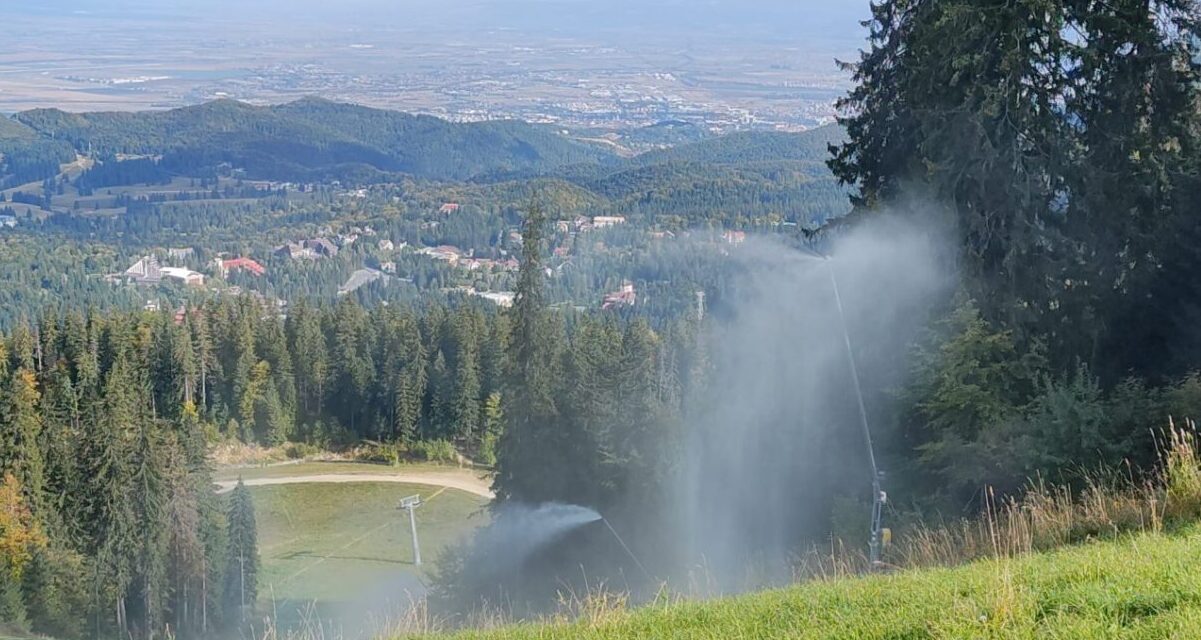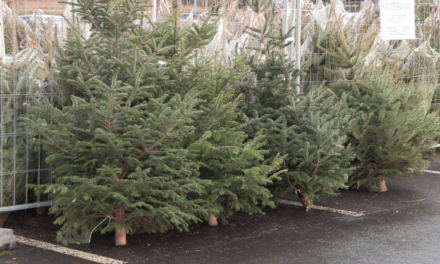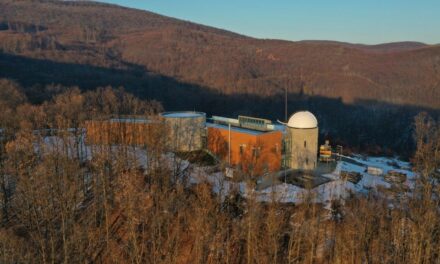Like many ski resorts in Europe, the days of weather-dependent mountain tourism services in Transylvania are numbered, instead, tourism experts recommend the construction of an aqua park and "Dracula rule".
One of the biggest problems of mountain tourism is the disappearance of snow, stated the president of the Romanian National Association of Tourist Offices (ANAT). Alin Burcea recalled at a press event in Bucharest: when he worked as a state secretary in the specialized ministry (between 2001-2002), the ski area in the Predeal-Azuga area was expanded and water was piped out for snow cannons through the Super Skiing in the Carpathians project.
"But then we didn't attach importance to the temperature," admitted the expert quoted by the Economica.net portal. Who underlined that
the lack of snow caused by global warming is a Europe-wide issue, causing significant problems in Austria and Switzerland as well.
The compilation of the economic portal shows that in some Austrian ski resorts the ski season was closed in March for this reason, and they started to prepare the ground for the summer season, mostly for mountain biking enthusiasts.
Most of the ski slopes in Switzerland also "remained fallow" due to the unusually warm weather. Here, twice the average warming is experienced, because the big mountains trap the heat.
"We also have to find solutions. What do we do when the snow disappears from Brasópojana? Currently, there is still snow for another month, but it is certain that we will not have that in ten years. A national project must be developed at the ministerial level. I think that water parks should be built, and a casino could be built in Brasópojána," said the president of ANAT, referring to one of the country's most popular ski resorts.
Where they have been complaining about the unfavorable weather for years, so they slowly got used to the little snow, and when evaluating the season that ended at the end of March this year - even knowing the record-breaking previous season - they rather highlighted the positives (noting that the 20-degree Celsius temperature at the end of March were forced to close the ski season).
According to the information of the mayor's office in Brasov, a total of 1.7 million entries were registered in the ski center in the 2023-2024 season, and winter sports enthusiasts were welcomed for 123 days from the opening on November 30, which is a month longer than last season.
They note that they have never managed to open this early, but during the winter it took a lot of effort to keep the ski slopes in usable shape due to the many plus-degree days and the little snowfall, which entailed the frequent use of snow cannons. But temperatures below minus 4 degrees Celsius were measured on only 42 days, which would have made it possible to make artificial snow at all: a total of 428,546 cubic meters were produced artificially.
The mountain rescuers had to intervene 446 times in the case of a total of 460 injured, lost or people awaiting rescue.
Although the numbers testify to a busy ski season, the general opinion is pessimistic and depressing, and this can be said across the country. Officials also reported a poor ski season in Székelyföld.
The head of the mountain and cave rescue service of the Harghita County Council, Fekete Örs, already stated at the beginning of March that this season was very poor for ski slope operators, as there was no snow and the winter was warmer than usual. At that time, the slopes of the Madarasi-Hargita Ski Center had the best conditions, because the snow cover was thicker, 40-50 centimeters.
Managing director Zoltán Sipos then expressed his hope that if the weather cools down, the season will last until the end of March with the commissioning of the snow cannons. This happened anyway, fresh snow fell in the middle of the month and at the beginning of its last week.
At the same time - "after 4 intensive months" - the ski season was closed on March 30, and the Bagolykő Kupa season-ending ski competition planned for that day was canceled due to unfavorable weather.
Meanwhile, for example, the ski season in Sinaia in Prahova County is being talked about as the worst ski season in recent years.
Due to the high temperatures, they could not even operate the snow cannons, and they could not officially open the lower slopes for the whole season. Due to the elimination, the track operators have to postpone the investments planned for this year.
They are not alone in their problems. According to a report last year by the scientific journal Nature Climate Change, 53 percent of the 2,234 ski resorts surveyed in Europe have a "very high risk of a lack of snow supply" if the global average temperature rises by 2 degrees Celsius compared to pre-industrial levels.
According to data collected by the European Union's Copernicus Climate Change Service since 1973, it is snowing less and less worldwide.
The most significant decline can be felt in the middle latitudes of the Northern Hemisphere (the area north of the tropics and south of the North Pole), the Index.hu portal wrote. Which, at the same time, also summarized the initiatives with which they fight against the closure of the ski slopes.
Although snow cannons and various devices have been used to remedy the problem for many years, new methods are also needed to be developed, especially in the case of lower-lying ski slopes.
One of the most effective of these is the practice of snow management. During this process, nearing the end of the season, they begin to accumulate snow, which, after collection, is placed in a huge, thermally insulated tent, where it is stored until the following winter. The snow collected there can be spread in the new season if necessary, or even the length of the skiing period can be increased with it.
With the help of the stored snow, a thick, usable layer of snow is spread on certain tracks, so nature, i.e. snowfall, is not even needed to start the season. Another big advantage of the method is that they don't have to operate snow cannons that use large amounts of water and compressed air, which results in significant electricity and water savings, Index reported. At the same time, some resorts in North America trap windblown snow with a network of fences, and then scatter the collected snow in other areas.
Such and similar plans are not heard of in Romania, where - going back to the statement of the president of the national association of tourist offices - some have already given up on the sustainability of the ski slopes.
According to Alin Burcea, Romania can no longer appeal to foreign tourists as a ski resort, and its other attraction, the sea, is not suitable for boasting, "others have better beaches". The specialist believes that he must come up with something "that no one else has". "We can stand up to fantastic tours with which we beat everyone, especially in Transylvania, with the German villages and towns. Banal, but there is also the Danube Delta, the only one in Europe that is ours - listed the tourism expert, and then continued:
"The one surrounding Dracula was an excellent project, which, unfortunately, went bankrupt. However, this is a "product" that is known worldwide. We have to say that Transylvania is in Romania, because everyone knows that Dracula is in Transylvania, but not that the latter is in Romania. Brilliant product, the idea of Dracula Park is excellent. It's hard to get them here to ski."
Cover image: Less and less snow in Transylvania
Source: Facebook/Primăria Municipiului Braşov













